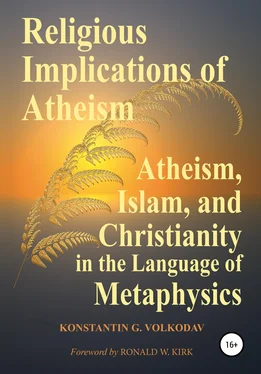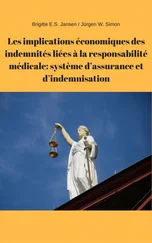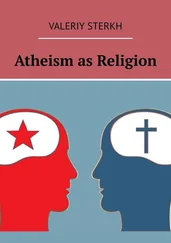Christian sacraments may be valid, but not act, because there is no soil, which would perceive them. You cannot accept the sacrament in the hope that something will happen magically. It is necessary for a person to experience spiritual hunger, striving to God. Then, through the sacraments, something can happen which cannot be achieved by dialectic and dispute.
Sometimes the pagan attitude to the worship was manifested very frankly. For example, in the rite of the Psalmocatara—curses by the psalms. [53] . Gr.: Ψαλμοκατάρα (from the Greek “ψαλμός”—“psalm” and “κατάρα”—“curse”) is the liturgical rite, which existed in the practice of the Greek Orthodox Church, at least in the twelfth–seventeenth centuries. Ii is described in the Greek Nomocanon of 1528.
The purpose of the Psalmocatara was to deliver a man into the hands of the devil and call upon him all sorts of calamities even up to his physical and spiritual death. The rite was prescribed to be performed in the temple by seven priests. In this case, priests put on all priestly clothes inside out, and shoes with the right foot put on the left and vice versa. They use unusual black candles. All this indicates that the priests were aware that this whole ritual is contrary to the Gospel and the purposes of Christian worship. Christ would have rebuked them, and said, “Ye know not what manner of spirit ye are of” (Luke 9:55 KJV).
Nevertheless, the Psalmocatara, a prayer for evil, in the twelfth–seventeenth centuries was practiced very, very often. Professor of Canon Law at Moscow University A. I. Almazov describes three versions of this rite. [54] . Алмазов, Проклятие преступника псалмами (Ψαλμοκατάρα). К истории суда Божьего в Греческой Церкви .
Later texts of the rank become more occult and practical (in the last edition it can be performed only by one priest and not necessarily in temple). Perhaps the Psalmocatara was a borrowing not only from pagan magic, but also from the Talmudic and Kabbalistic practices. For example, from the rite of the “pulse de Nura.” By the way, the rite of the Psalmocatara is not officially abolished, and there has never been its conciliar condemnation, and if you consider that it was used for at least five hundred years, you can generally talk about its reception, inclusion in the Church tradition and consensus patrum!
Thirdly, we note one more paradoxicality of Christianity in relation to the Christian Church. In a sense, the concept of a Church is very close to the concept of religion (the Church is a religious organization), one can define another. However, there is still no unambiguous and universally accepted definition of the Church, although theologians have written about it for almost two thousand years.
It is easy to say where the Church is, but it is almost impossible to predict correctly where the Church is not. If the definition is specific, unambiguous, then it does not stand up to criticism, because it leaves beyond its scope a set of church phenomena. For example, in the Catechism of the Metropolitan of Moscow Filaret, the following definition is given: “The Church is society of people established by God, united by Orthodox faith, the law of God, the hierarchy and the Sacraments.” But the robber who was crucified to the right of Christ and who entered the Paradise on the same day (Luke 23:43), did not take part in any society, did not even have a concept about “hierarchy” and the Sacraments. And many holy ascetics–deserters hermits tried to keep away from both the hierarchy and the community of believers.
If the definition is broad, multi-valued, then it includes many completely non-church phenomena. For example, Metropolitan of Moscow Platon (Levshin) said, that the Church is a gathering of people, believers in Jesus Christ. But “even the demons believe—and shudder” (James 2:19), and the followers of the church of satan also believe in Jesus Christ. Another broad definition was given by A. S. Khomyakov: “The Church is the organism of love”. However, examples of love can be found and in non-Christian societies. In addition, it is one thing to talk about love, and quite another—to show it actively. By the way, the Historical Church, shows many more examples of not love than love.
At the same time, God does not belong to a particular religion or confession (Acts 10:34–35). “He makes his sun rise on the evil and on the good, and sends rain on the righteous and on the unrighteous” (Matt. 5:45). He does not discriminate, but looks at the heart of a person. A person can be mistaken mentally, but be pure in heart and pray truly, and maybe vice versa.
Thus, all the verbal definitions of the Church are similar to the description of a temple as an architectural work. You can go to it for years, but do not understand its difference from any other building. And you can sit in the silence of an empty temple and feel that this is the place of meeting with God, the place of his particular presence. Similarly, one can understand (or not understand) what the Church is. The definitions of the Church describe it only from the outside, from within it is the mystery of the life of the soul in God, the mystery of meeting, presence and intercommunication. People are attached to this mystery in varying degrees. On the one hand, the members of the Church through baptism are clothed in Christ, through chrismation receive the gifts of the Holy Spirit. On the other hand, God does not violently invade human life, and members of the Church have the freedom to sin. Therefore, in the Church there are, as it were, different currents. All people are sons of God by vocation, that is, sonship is already there, but at the same time it is still in the stage of formation, in the stage of building a miracle of mutual love and love for God. This is another paradox: Christians have already achieved the goal, but at the same time only on the way to it, are attached to the eternal Kingdom of God, but are in the temporal kingdom of this world. History and eternity are inseparably united in the Church: everything is already completed, but at the same time it is still in the making.
Thus, Christianity is paradoxical in every point, but on its historical path it is closely intertwined with its opposite—orthodoxy, which is a consequence of the impact of sinful origin and paganism. However, it should be noted that here the term “orthodoxy” has no relation to the name of the Greek Orthodox Church, which appeared due to the Great Schism of 1054, but applies to all confessions and to the whole history of the Church, including the Old Testament.
St. Cyprian of Carthage said that the custom without truth is only an old misconception. [55] . St. Cyprian of Carthage. Letter to Pompey against Stefan’s letter about the baptism of heretics .
Therefore, a thoughtful interpretation of the whole church history is necessary. It is necessary to separate the good from the bad (Matt. 13:48) and to assess the apparent apostasy of historical Christianity from Christ and the Gospel. A good example is the history of the Israeli people, written in the Old Testament. Everything is frankly portrayed there: the people as whole and individual personalities in one form or another very often adopted paganism adopted the customs of idolaters. Nevertheless, God did not leave them, which is repeatedly emphasized in the Bible. Therefore, it is necessary to comprehend two ways, paradoxical and orthodox, and correcting the approach to spiritual life accordingly. Until it happens in the Church, there will be a terrible contradiction between words and real deeds.
Any criticism of Christianity as a religion must be preceded by a preamble that it has two components: the “religious” and the “personal” (personal experience). We must say that the “religious” component for centuries been influenced by political, social and cultural factors.
Читать дальше

![Константин Бальмонт - Константин Бальмонт и поэзия французского языка/Konstantin Balmont et la poésie de langue française [билингва ru-fr]](/books/60875/konstantin-balmont-konstantin-balmont-i-poeziya-francuzskogo-yazyka-konstantin-balmont-et-thumb.webp)










